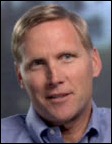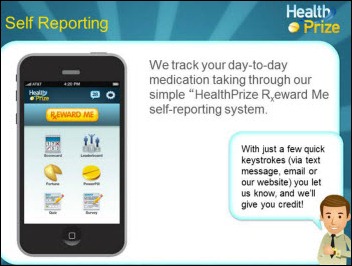Giving a patient medications in the ER, having them pop positive on a test, and then withholding further medications because…
News 4/11/12
Top News

HHS proposes a one-year delay for ICD-10 compliance, pushing the deadline to October 1, 2014 and giving providers and other covered entities more time to prepare and test their systems with the new code sets. HHS also issues a rule requiring all health insurance plans be numerically tagged with a unique health plan identifier, which it says would save providers and health plans up to $4.6 billion over the next ten years.
Reader Comments
From What Next?: “Re: Epic starting their own consulting business. Anyone heard that rumor? They’re supposedly trying to hire back former employees to provide supplemental staffing for application build and design, credentialed training, and go-live support. They would price this as part of the license cost under ‘enhancement implementation services.’” Unverified.
From Baldp8: “Re: Medicare reimbursement break-even in hospitals. How will this impact the IT capital and operating budgets? More spending to automate costs out or less spending to get to a number?”
From Lovin’ Sunshine: “Re: McKesson Practice Partner. Heard that Mel Coovert is no longer with the company, making us consultant folks wonder if Practice Partner is headed the way of Horizon Clinicals. Makes us go ‘hmmmm’ being right in the middle of an implementation.” Melissa Coovert left the company last month, according to her LinkedIn profile. That’s all I know.
HIStalk Announcements and Requests
![]() I had a brush with technology at the doctor’s office this week. I had a minor procedure a couple weeks ago and the incision area has not healed well. Yesterday I decided I should have my doctor check it out, but she had taken the day off. I saw one of her partners instead, who asked me to compare the site with its appearance a week ago. That’s when I whipped out my iPhone and showed him a picture I had taken. He then made his assessment (I’m getting better) and I went on my way. It’s the little things that get me geeked.
I had a brush with technology at the doctor’s office this week. I had a minor procedure a couple weeks ago and the incision area has not healed well. Yesterday I decided I should have my doctor check it out, but she had taken the day off. I saw one of her partners instead, who asked me to compare the site with its appearance a week ago. That’s when I whipped out my iPhone and showed him a picture I had taken. He then made his assessment (I’m getting better) and I went on my way. It’s the little things that get me geeked.
The folks at Imprivata sent over this brilliant item from their April newsletter.
Acquisitions, Funding, Business, and Stock
Cerner CEO Neal Patterson earned $5.6 million last year, a 10% boost over 2010. Compensation included a salary of $1.025 million, $1.6 million in cash incentives, and stock options valued at $2.8 million on the date they were granted. He also received $122,412 in “other compensation” that included $110,000 for his private use of the corporate aircraft, plus contributions to his 401(K), insurance plans, and private security systems.
Sales
Mercy selects Merge Healthcare’s iConnect VNA as its image archive solution for more than 200 facilities across the Midwest.
The 200-member IPA of Nassau/Suffolk Counties (NY) selects Greenway’s PrimeSUITE EHR/PM solution.
FirstHealth of the Carolinas selects Thomson Reuters’ Integration Discovery, powered by CareEvolution, to provide clinical interoperability across its system.
People
Cardinal Health names Donald M. Casey, Jr. CEO of its medical products and services business. He was previously CEO of the West Wireless Health Institute.
John D. Bennett MD, FACC, FACP, president of CDPHP, joins the board of New York eHealth Collaborative.
David O’Hara, COO of Microsoft Advertising, joins the board of Intelligent Insites.
Announcements and Implementations
The Hawaii HIE goes live on messaging and referrals using the Medicity platform.
Elsevier launches ClinicalKey, an online collection of clinical resources covering every medical and surgical specialty and including over 700 textbooks and 400 medical journals.
Capsule Tech releases the first of a series of videos called Connected Consultants intended to educate clinicians and IT staff about medical device integration. The first one is pretty funny.
UnitedHealthcare donates $700,000 to the California Telehealth Network to expand telemedicine training and support rural and medically underserved clinics and hospitals in California.
Government and Politics
CMS announces that 27 ACOs have entered into agreements to participate in the Shared Savings Program beginning April 1, 2012 and has selected five organizations for inclusion in its Advanced Payment ACO model. CMS is considering an additional 50 applicants for the Advance Payment program beginning July 1st.
CMS publishes a full set of proposed Clinical Quality Measures for 2014 as part of the proposed Stage 2 EHR rule.
Other
![]() I loved this headline and yes, it prompted me to read the article. The Washington Post article discusses a letter recently published in the British Medical Journal, which highlighted the amount of data entered incorrectly into the UK’s medical system.
I loved this headline and yes, it prompted me to read the article. The Washington Post article discusses a letter recently published in the British Medical Journal, which highlighted the amount of data entered incorrectly into the UK’s medical system.
A class-action lawsuit is filed against St. Joseph Health System (CA), which in 2011 accidentally released information on 31,800 patients. At the time of the breach, personal and medical information stored in unencrypted electronic reports were searchable online. The suit seeks $31.8 million, following California’s mandatory damages of $1,000 per affected individual.
Weird News Andy spotted this major breach news. An IT tech’s weak server password allows European hackers to penetrate a Utah Department of Health Medicaid claims server, where they download thousands of files covering nearly 900,000 individuals, of which 280,000 have their Social Security numbers stolen. Here’s an interesting quote from RSA’s CISO:
Why do we continue to see these large aggregate databases? Why should hackers be able to steal 10 million credit card numbers or 700,000 personal records at once? We need to think about distributing that information so that when networks do get penetrated, we’re not looking an all-or-nothing situation.
WNA also likes this story about the geriatric ED at Mount Sinai Hospital (NY), of which there are several dozen nationally. He’s a bit creeped out by the dome in the photo, saying it reminds him of Edward G. Robinson in Soylent Green.
A state audit of SUNY Downstate Medical Center finds that only 10 of its 200 departments are using the $2 million purchasing system it implemented over a four-year period.
A Time article says that cash-strapped universities, following the lead of for-profit schools, are cranking out high-margin professional certificate programs that are attractive to mid-career students who don’t need financial aid or whose employers reimburse them. Healthcare technology management was mentioned. Experts question the quality and the career value to students.
HealthPrize Technologies, which encourages medication adherence through online games and rewards, brings on new staff to support what it says is major growth. Founder and CEO Tom Kottler’s first startup was revenue cycle vendor MedAptus.
The CEO of Sony, which just announced a $6.4 billion loss for the year, says the company may get into the medical products business.
Jack Tramiel, who bought a typewriter repair shop and turned it into Commodore, the company whose early computers (VIC-20, PET, Commodore 64) helped make home computing popular, died this week at 83.
The CEO of Henry Ford Health System (MI), reporting a 64% decrease in net income to $22 million, calls the past two years “transition years” as the organization spent $300 million on Epic less than a year after going live on its $100 million homegrown system.
Four former executives of iSoft, including former chairman Patrick Cryne, will be tried in the UK, charged with making intentionally misleading statements to inflate the company’s financial position.
An attorney and former employee of the Austin, TX-based Cancer Connection volunteer program sues her former employer for wrongful termination, saying the organization ignored her strong warnings that it needed to implement HIPAA training and to stop giving volunteer-prepared baked goods to cancer patients. One of the organization’s founders and board members, known as “the brownie lady,” told her the baked goods policy would not be changed.
Sponsor Updates
- In Turkey, Emsey Hospital implements iMDsoft’s MetaVision in its ICU.
- Culicchia Neurological Clinic (LA) selects SRS EHR and Patient Portal for its 17 providers.
- MEDecision announces details of its Client Forum 2012 conference May 1-4 in Philadelphia.
- Liaison Technologies completes all milestones required as part of a $30 million investment from Merck’s Global Health Innovation Fund.
- Kony Solutions appoints Harold Goldberg (Merced Systems) its chief marketing officer.
- Raymond Gruby MD, FACS, chief medical officer at Intelligent InSites, will present a session on RTLS in medicine at this week’s meeting of the SD/ND chapters of the American College of Surgeons.
- MEDSEEK and Microsoft co-host an April 12 Webinar explaining why healthcare reform strategies will fail without patient engagement.
- Kareo launches a Resource Center that includes webinars, white papers, and educational videos.
Contacts
Mr. H, Inga, Dr. Jayne, Dr. Gregg.
More news: HIStalk Practice, HIStalk Mobile.














There is a consulting firm owned by previous Epic employees that has mostly ex-Epic employees working there. I wonder if that’s what the rumor is actually about?
Epic getting into providing consulting services is a no-brainer. 40% margins or better, it’s easier to control the consultants you own, and the ‘message’ doesn’t get confused by third-party consultant providers offering to ‘help’, while adding a lot of overlay services the client doesn’t really need. “How ’bout some ICD-10 with your Beaker install?” doesn’t really make Lab go better.
There are several Consulting firms owned and/or operated by former Epic Employee’s (hey, what are ya gonna do when Judy shows you the door. As Bill Murray said in Groundhog day (It’s nothing. I had the tire and the jack.) or I had the experience and the certs).
Sagasious, Cipe come to mind
http://www.cms.gov/apps/media/press/factsheet.asp?Counter=4334&intNumPerPage=10&checkDate=&checkKey=&srchType=1&numDays=3500&srchOpt=0&srchData=&keywordType=All&chkNewsType=6&intPage=&showAll=&pYear=&year=&desc=&cboOrder=date
Some of us ex-epic are also completely independent. I have to admit that it would be tempting to rejoin the fold (so to speak) for access to the internal support but as an independent I have more flexibility. The questions I ask myself are Why would I give up running epic installations as an independent consultant. Why would I give up having the option to custom code whatever setup my customer and I deem value enhancing? Why would I no longer consult with companies that want to integrate their product offering into Epic? Basically, I cannot see a scenario where I would not throw the value of getting my masters of biomedical informatics to go work for them again.
My first computer was a Vic-20. I still have it (along with my PC-XT and my original US Robotics Palm Pilot).
It supported a 40 character line length on my old tube TV and the CompuServe online service which I connected to with my 300 baud modem and paid for by the character (and the kids today whine about bandwidth throttling).
An Epic consulting company is something that Judy has had in mind for years. Will be interesting to see if it really happens. Big question: will Epic then be as supportive as they have been of the outside consulting companys?
Re: professional certificate programs for HIT.
I was in the Masters in Medical Informatics program at Northwestern. It’s technically a MS, but it follows the same trend of offering career-specific training for a high price. Even though it was all online, it was initially a good way to get exposed to new topics with knowledgeable professors, shore up your knowledge in areas you had not tackled yet, and network with individuals outside of your expertise (classes has MDs, CIOs, analysts, programmers all able to discuss and react).
But they recently switched to a format where there’s no real interaction: no lectures (not even recorded!!!), no real meetings except some rare optional ones. All you do is do the readings (or don’t), answer some questions on a online discussion board (what are we, 12-year-olds?), and maybe write a paper or take a final. Congrats – you have a Masters! It’s my understanding that all similar programs are going that direction as well – no chance to ask questions unless you like Reddit-style commenting. Pretty soon they’ll be able to eliminate professors entirely and drive profits up further.
Fortunately, I dropped the program shortly after the change happened. I’m not paying $40k for a reading list. At least my first few classes were valuable, too bad they eliminated the valuable parts (lectures and live, required discussions)
Epic owning a consulting company?? Is that like letting the fox into the henhouse?? I would think that customers looking to hire a consulting firm to install Epic would be interested in some objectivity, as well as knowledge on subjects other than epic, a, I wrong?
Yes Lou it is. But Epic is suddenly realizing that even if every hospital in the world buys your software, what happens when you have no more revenue stream from software sales? Time to trot out the services cash cow.
Epic is great at software, and their product is purchased by CIOs.
Consulting services are purchased by COOs and CFOs, and have a very different value prop.
Unless their consulting services are all about how to use Epic (which would speak to their initial install skills) I think they become one of many.
That salary of the Cerner CEO ain’t bad for a pig farmer. The obscene executive salaries commonplace today is not good for the economy or the society.